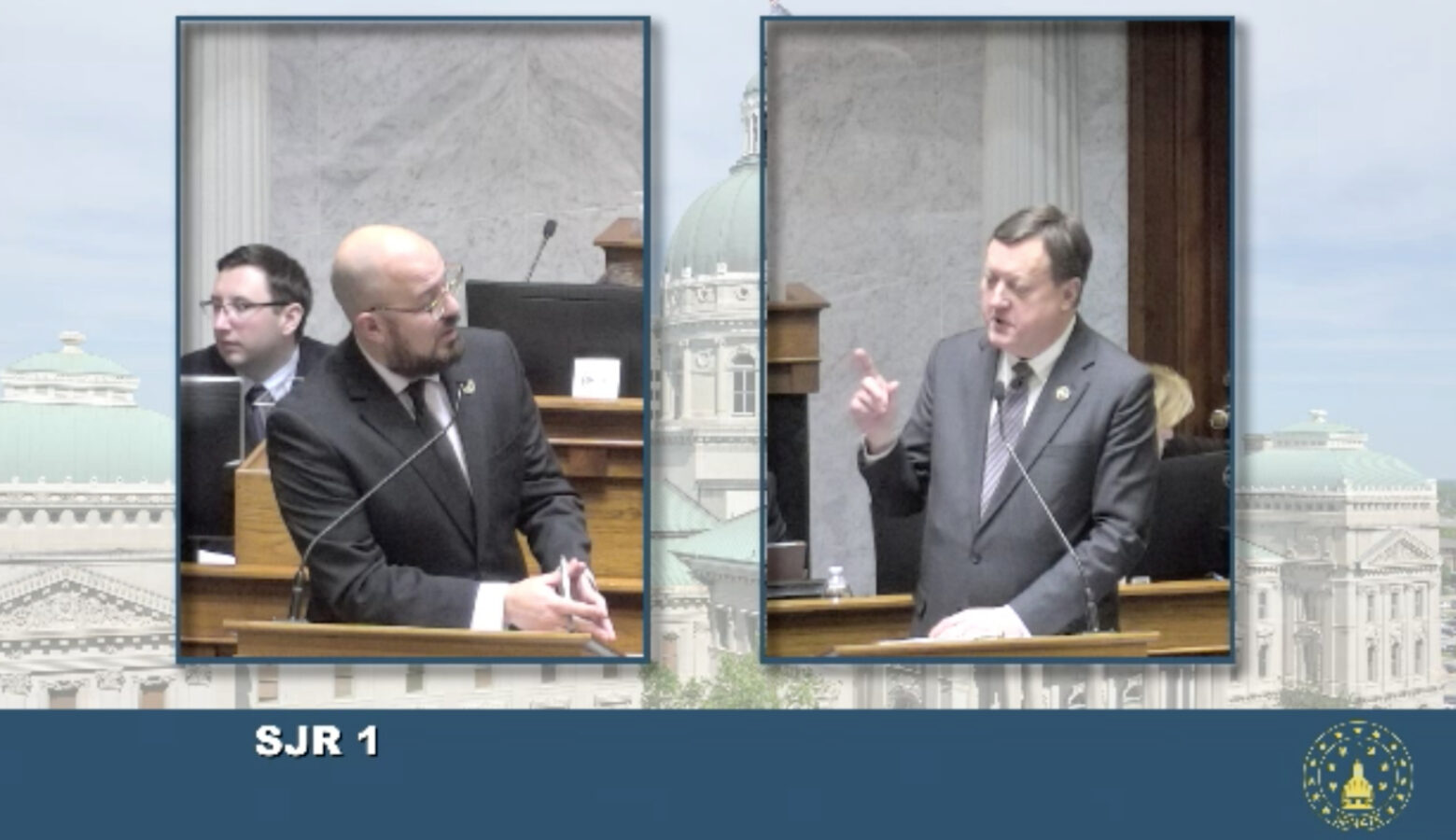Senate passes proposed change to Indiana constitution to refuse bail for more people

The state constitution currently requires judges to offer bail for all crimes except for murder and treason. The proposed constitutional amendment, SJR 1, would expand that to refuse bail for any crime if the person is a “substantial risk to the public.” It passed the Senate Thursday 34-15.
Sen. Eric Koch (R-Bedford), one of the resolution’s authors, said the majority of states have laws that limit who has access to bail.
“Hoosiers deserve and are willing to pay for public safety,” he said. “And if it means fewer murders, fewer rapes, fewer violent crimes, fewer witnesses intimidated, then Hoosiers are willing to pay for that.”
Several lawmakers spoke against the resolution, citing the vagueness of its language. They asserted it opens the door for people’s past record and race to impact whether they can be offered bail.
Sen. Sue Glick (R-LaGrange) asked what constitutes a substantial level of risk.
“Is this risk of danger?” she said. “Is it physical danger? We’re afraid of someone and we will deny them the very liberty and freedom that they’re assured? Because we’re physically afraid of them?”
Two Democrats also spoke against the resolution during Thursday’s session, including Sen. Rodney Pol (D-Chesterton). He argued that denying more people bail would lead to overcrowding in jails and an increase in requests from defendants for speedy trials.
“We’re going to overwork an already overworked system,” Pol said.
If the legislature approves the resolution this session, lawmakers will have to approve it again in 2025 or 2026 before it goes on the ballot for Indiana voters.
Contact WFYI criminal justice reporter Katrina Pross at kpross@wfyi.org. Follow on Twitter: @katrina_pross.
Pross is a Corps Member of Report for America, an initiative of The GroundTruth Project.
